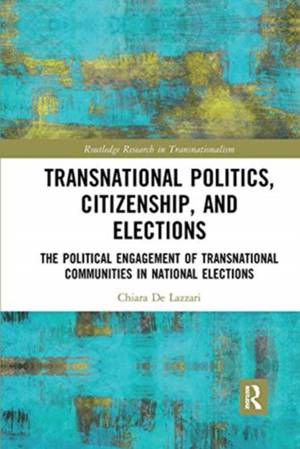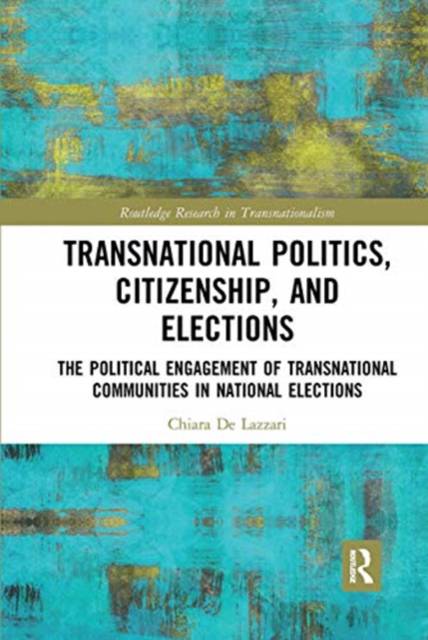
- Afhalen na 1 uur in een winkel met voorraad
- Gratis thuislevering in België vanaf € 30
- Ruim aanbod met 7 miljoen producten
- Afhalen na 1 uur in een winkel met voorraad
- Gratis thuislevering in België vanaf € 30
- Ruim aanbod met 7 miljoen producten
Transnational Politics, Citizenship and Elections
The Political Engagement of Transnational Communities in National Elections
Chiara de LazzariOmschrijving
This book examines the reasons for which political parties engage with transnational communities and consider the engagement of expatriate communities to be of value or, otherwise, for domestic politics. Centred on Italy, and offering comparative analyses of external voting policies in other countries, such as Turkey and Romania, it draws on interview material with representatives of major political parties and members of state institutions to consider why parties value the political engagement of citizens living abroad. With attention to citizenship policies and the motivations that guide policy makers to introduce external voting policies in countries of origin, the author raises questions about the legitimacy of political engagement on the part of diasporic communities and asks how we should best understand the implementation of certain types of domestic citizenship policy. As such, Transnational Politics, Citizenship, and Elections will appeal to scholars of sociology and politics with interests in transnationalism and the engagement of expatriate populations in the domestic politics of their countries of origin.
Specificaties
Betrokkenen
- Auteur(s):
- Uitgeverij:
Inhoud
- Aantal bladzijden:
- 134
- Taal:
- Engels
- Reeks:
Eigenschappen
- Productcode (EAN):
- 9780367726881
- Verschijningsdatum:
- 31/03/2021
- Uitvoering:
- Paperback
- Formaat:
- Trade paperback (VS)
- Afmetingen:
- 156 mm x 234 mm
- Gewicht:
- 213 g

Alleen bij Standaard Boekhandel
Beoordelingen
We publiceren alleen reviews die voldoen aan de voorwaarden voor reviews. Bekijk onze voorwaarden voor reviews.











